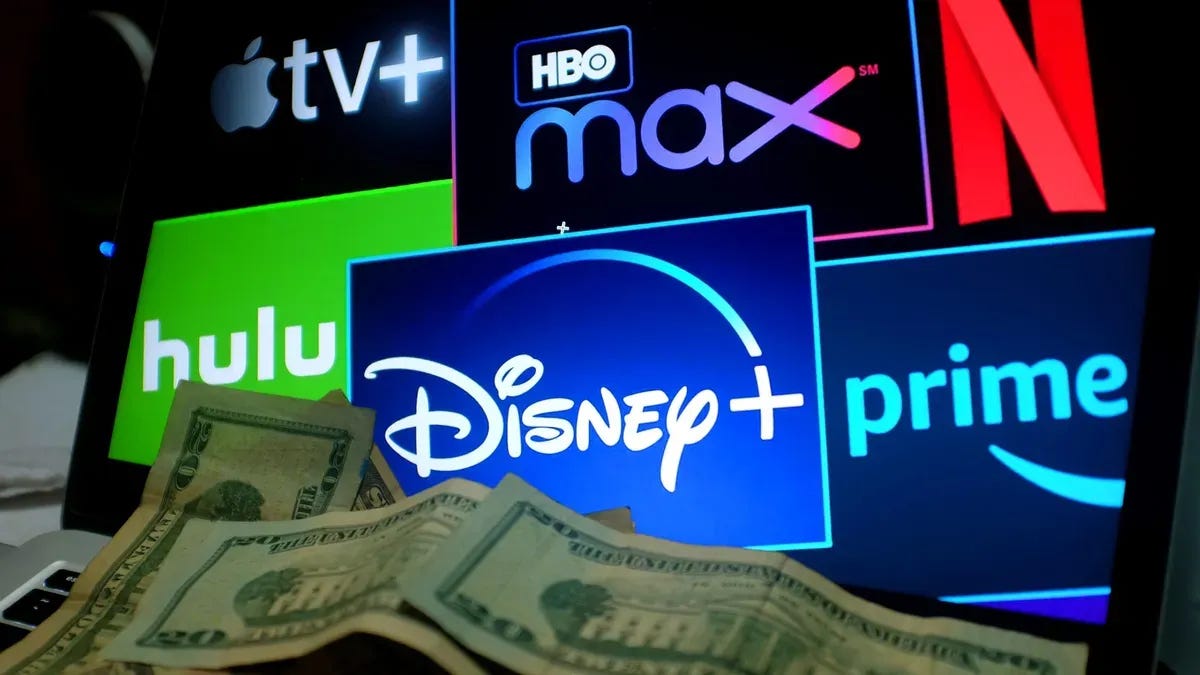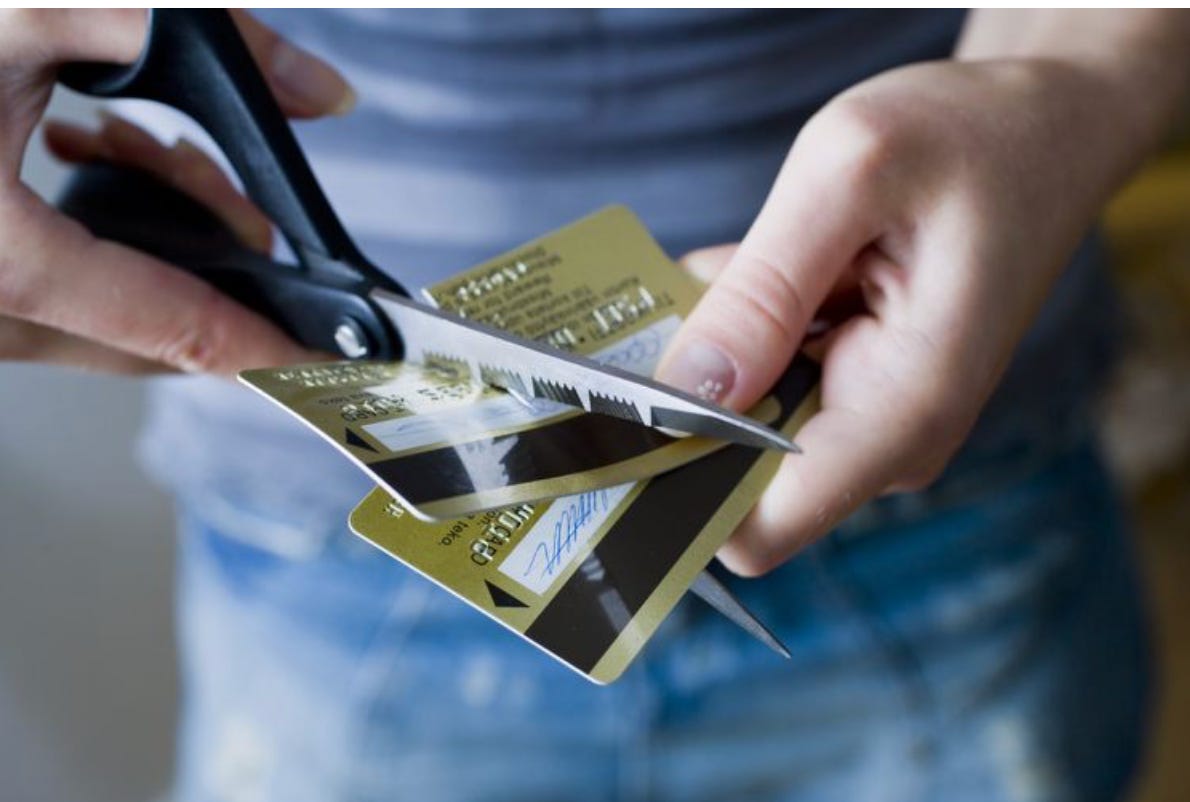The Biggest Ways People Waste Money Each Month (And How to Stop)
From subscriptions to impulse purchases, learn how to cut unnecessary expenses and take control of your finances.
Many of us don’t realize how much money we waste every month on unnecessary expenses. Whether it's small daily indulgences, forgotten subscriptions, or convenience fees, these costs add up quickly. The good news? With some awareness and simple habit changes, you can save hundreds—if not thousands—of dollars a year. Here are some of the most common ways people waste money and practical tips to help you cut back.
1. Subscription Services
The Problem:
In today’s digital age, it’s easy to sign up for multiple subscription services and forget about them. From streaming platforms to gym memberships, unused subscriptions can silently drain your bank account.
How to Save:
Audit Your Subscriptions: Go through your bank statements and cancel any services you no longer use.
Share Accounts: Many streaming services allow multiple users. Consider sharing accounts with family or friends.
Use Free Alternatives: Public libraries offer free e-books, audiobooks, and even streaming services. For example, Hoopla is a free audiobook app that you sign up for using your local library card number.
2. Food & Drinks
The Problem:
Eating out frequently, buying takeout, and purchasing coffee daily can add up quickly. Wasted groceries are another hidden cost many people overlook.
How to Save:
Meal Prep: Cooking meals at home and bringing lunch to work can save hundreds of dollars per month.
Additionally, be realistic about how much you (and your family) eats in a single sitting - avoid cooking too much at one time to reduce spoilage and throw-away waste.
Limit Takeout and Delivery: Reduce ordering food to once or twice a month and pick it up yourself to save on delivery fees.
Make Coffee at Home: A $5 daily coffee adds up to over $1,800 per year. Investing in a good coffee maker can significantly cut costs. Plus, let's be honest - those $5 coffees aren't even usually all that great!
Plan Grocery Shopping Wisely: Make a list before going to the store, buy in bulk when possible, and avoid impulse purchases. Costco and Sam's Club can help you save a lot of money over time on goods like paper products and household cleaners.
3. Bank & Credit Fees
The Problem:
Banks and credit card companies make a fortune from unnecessary fees, including interest charges, overdraft charges, late payment fees, and ATM fees.
How to Save:
Use Fee-Free Banks: Look for local credit unions or smaller locally-owned banks that offer free checking accounts and no overdraft fees.
Set Up Automatic Payments: Avoid late fees by setting up autopay for bills and credit cards. Many accounts will offer a small discount for enrolling in auto-pay as well.
Use In-Network ATMs: Avoid fees by withdrawing cash only from your bank’s ATMs.
NOTE: Many credit unions use a system called co-op branch sharing - this allows you to use ATMs at any of the credit unions within the co-op, even if you aren't an active member of those other credit unions.
Stop using credit cards: Even if you pay the balance off every month, studies show that people who use credit cards regularly spend an average of 12-18% more money than they otherwise would have using cash. 1
STOP FALLING FOR THE "REWARDS"! You know what's a great reward? 15% more cash back in your pocket every month, and not in the lobby furniture of the Capital One building.
4. Impulse Purchases
The Problem:
Online shopping has made impulse spending easier than ever. Social media ads and one-click purchases can quickly drain your budget. That's right - TikTok Shop is NOT your friend.
How to Save:
Wait Before Buying: Give yourself a 24-48 hour "cooling-off" period before making a purchase.
Unsubscribe from Retail Emails: Retailers send constant promotions to encourage spending. Unsubscribing can help reduce temptation - and clean up your inbox.
Use a Budgeting App: Tracking your spending makes you more mindful of where your money is going. I'm a fan of the Ramsey Everydollar app. It tracks your transactions in real time and neatly organizes your expenses and line items bills so that you can accurately budget month to month.
Delete Saved Payment Info: Having to manually enter payment details adds friction and may deter unnecessary spending.
5. Luxury Conveniences
The Problem:
Many people overspend on name-brand products, premium gas, and services they could do themselves.
How to Save:
Use Generic Brands: Store-brand products are often just as good as name brands at a fraction of the price.
Skip Premium Gas: Most cars run perfectly fine on regular, unleaded gas. Check your vehicle owner’s manual for the specific fuel octane rating you should be using. You might be surprised!
Do Simple Tasks Yourself: Wash your own car, do your own nails, and cook at home instead of paying extra for services.
6. Energy & Utility Waste
The Problem:
High utility bills often result from wasted energy and inefficient household habits.
How to Save:
Unplug Electronics: Many devices continue to use electricity even when turned off.
Switch to LED Bulbs: LED light bulbs use less energy and last longer.
Adjust Your Thermostat: Lowering your heat or air conditioning by just a few degrees can save money.
Use Smart Power Strips: These automatically cut power to devices not in use.
Negotiate Your Internet Bill: Many providers will lower your bill if you call and ask for a better rate. Sometimes, even bluffing and threatening to leave for another service will prompt them to give you a generous offer on the spot.
7. Lottery & Gambling
The Problem:
Gambling, including sports betting, casino games, and lottery tickets, often leads to more losses than wins.
How to Save:
Set a Strict Limit: If you enjoy gambling, allocate a small entertainment budget and stick to it.
Avoid Emotional Betting: Never gamble to “win back” lost money—it often leads to bigger losses.
Find Free Entertainment: There are countless free and low-cost ways to have fun without risking money.
Small Changes Lead to Big Savings
Cutting back on unnecessary expenses doesn’t mean eliminating all luxuries. It’s about being more intentional with your spending. Even small adjustments can result in big savings over time.
Quick Recap on How to Save:
Audit subscriptions and cancel unused ones.
Reduce takeout and cook more at home.
Avoid bank fees by choosing fee-free accounts.
Cut up the credit cards and close the accounts.
Pause before making impulse purchases.
Opt for generic brands and DIY when possible.
Be mindful of energy use to lower utility bills.
Set limits on gambling and "fun" spending.
By implementing just a few of these strategies, you can take control of your finances and keep more of your hard-earned money.
What’s one expense you’re cutting back on this month? Subscribe and share in the comments below!
Check Out My Website
for Fitness and Finance Coaching






